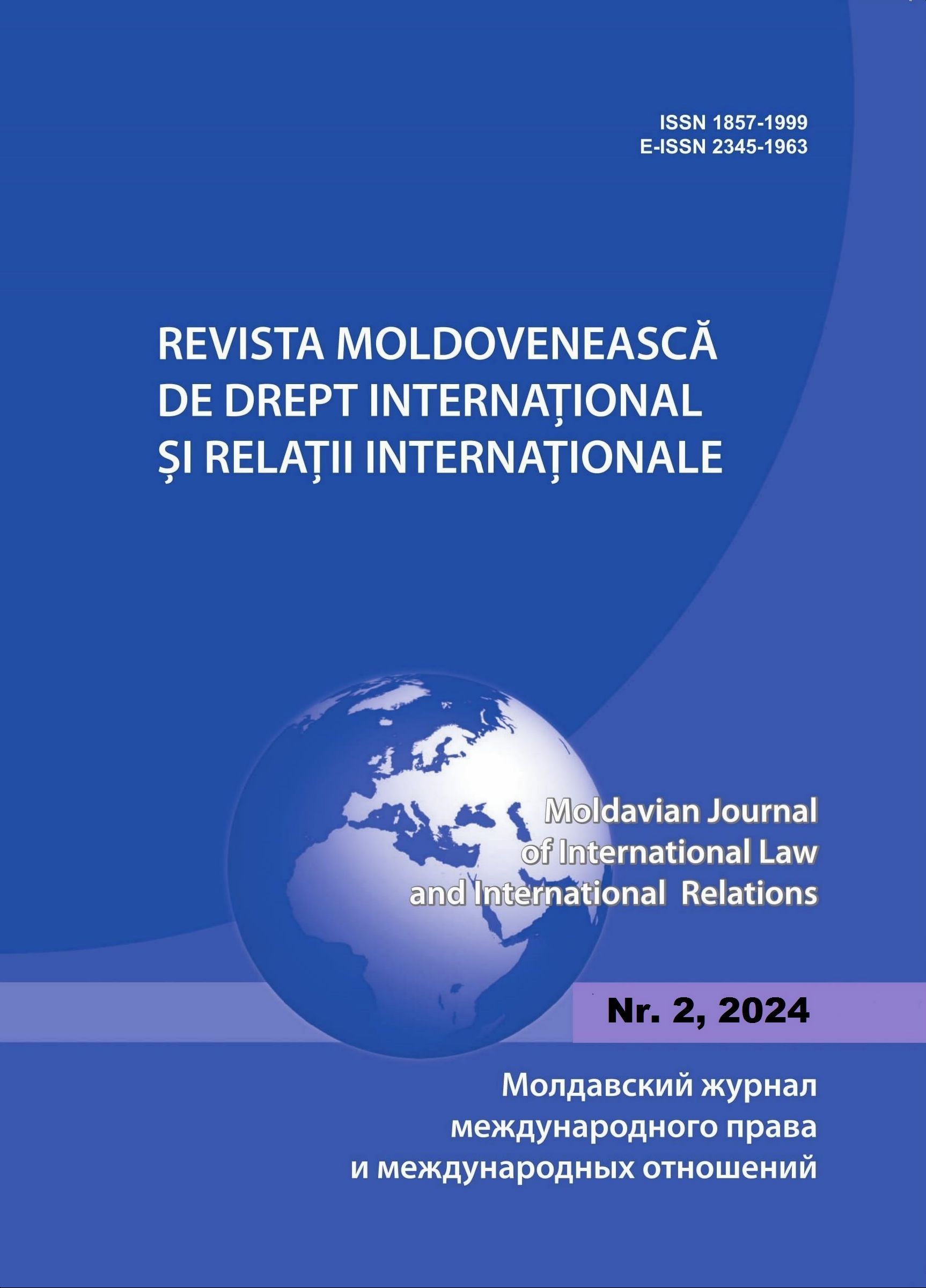Moldavian Journal of International Law and International Relations
SUSTAINABLE ECONOMY AND EFFECTIVE ENVIRONMENTAL GOVERNANCE: KEY PRINCIPLES AND GLOBAL BEST PRACTICES
Author: LISENCO Vladlena
JEL Classification: A11; K32; Q56
Universal Decimal Classification: 342.2:33; 349.6; 349.6.086
DOI: https://doi.org/10.61753/1857-1999/2345-1963/2023.19-2.04
LISENCO Vladlena - Doctor of Juridical Sciences, Associate Professor, The University „Taras Shevchenko”of Tiraspol (Tiraspol, The Republic of Moldova).
https://orcid.org/0000-0002-9846-2750Email: vlada.lisenco@gmail.com
Keywords: green economy, circular economy, bioeconomy, climate change, good environmental governance, public governance, sustainable development, human rights, globalization.
Abstract
This research explores the integration of economic development and environmental sustainability, focusing on balancing present needs with future resource conservation. It investigates how green economies and governance practices can mitigate pollution, climate change, and resource depletion. Central to this study is how sustainable development can be achieved through practical governance and economic strategies promoting low-carbon, resource-efficient, and inclusive growth. Examining concepts like the circular economy and bioeconomy, the study addresses the urgent impact of globalization on national development and environmental issues. Through a comparative analysis of green public governance models and sustainable economic practices and case studies from Nordic countries, Germany, France, and the Netherlands, it identifies effective strategies. Findings show that sustainable growth can coexist with environmental preservation through green investments, supportive policies, and inclusive development. The research highlights the importance of transparency, accountability, inclusiveness, and the rule of law in environmental decision-making to facilitate sustainable development globally.

